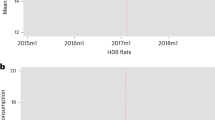Abstract
Metering water consumption has been long advocated by economists in developing countries as a way to curb waste and prevent resource depletion. However, very few of these economists have studied the inefficiencies brought about by universal metering or the conditions under which decentralized water metering decisions are optimal. If the decision where to install water meters rests on either the consumer or the Company providing the service this article shows that if left unregulated, both the consumer's and the Company's decentralized water metering decisions are sub-optimal. This is because the firm when installing meters, does not take into account the fall in consumer surplus and the consumer, when voluntarily installing a meter in his dwelling, does not take into account the effect of his decision on the Company's profits. To solve this externality problem and make the decentralized decision optimal, an incentive mechanism is proposed. The mechanism works through a series of Pigouvian taxes imposed by the regulator on the party creating the externality. By means of these taxes, externalities are internalized and both the consumer and the Company reach the socially optimal solution in a decentralized way. The implementation of this mechanism in practice is materialized through a Coasian property rights approach where the parties involved reach the efficient solution by bargaining over welfare gains. The party installing the meter has to buy the ‘right to meter’ from the metered party by fairly compensating him thus internalizing the externality and reaching the efficient outcome. To illustrate the incentives involved in metering water consumption, the rate structure and metering policies of two water concessions in Argentina are studied: Buenos Aires and Córdoba. Conclusions and policy recommendations are drawn from the theory and the two practical cases.
Similar content being viewed by others
References
Alberini, A., Eskeland, G., Krupnick, A. and McGranahan, G.: 1996, Determinants of Diarrheal Disease in Jakarta, Policy Research Working Paper No. 1568, Policy Research Department, The World Bank.
Albouy, Yves: 1983, Análisis de Costos Marginales y Diseño de Tarifas de Electricidad y Agua, Interamerican Development Bank, Washington.
Elnaboulsi, J. C.: 2001 ‘Non linear pricing and capacity planning for water and wastewater services’, Water Resour. Manage. 15, 55–69.
Gans, J., King, S. and Woodbridge, G.: 2000, Numbers to the People: Regulation, Ownership and Local Number Portability, Mimeo, University of Melbourne.
Interamerican Development Bank: 1996, Argentina: El Proceso de Transformación del Sector de Agua Potable y Saneamiento, Departamento Regional de Operaciones, D.C.
International Bank for Reconstruction and Development: 1977a, Alternative Concepts for Marginal Cost for Public Utility Pricing: Problems of Application in the Water Supply Sector, Staff Working Paper, No. 259, Washington.
International Bank for Reconstruction and Development: 1977b, ‘The Costs and Benefits of Water Metering’, P.U Report No. PUN 29, Washington D.C.
OECD: 1987, Pricing of Water Services, Paris.
OFWAT: 2001, Tariff Structure and Charges 2001-2002, London.
Turvey, R.: 1976, ‘Analysing the marginal cost of water supply’, Land Economics 52(2).
Warford, J.: 1997, Marginal Opportunity Cost Pricing for Municipal Water Supply, IDRC Working Paper.
Author information
Authors and Affiliations
Rights and permissions
About this article
Cite this article
Chambouleyron, A. An Incentive Mechanism for Decentralized Water Metering Decisions. Water Resources Management 17, 89–111 (2003). https://doi.org/10.1023/A:1023638823691
Issue Date:
DOI: https://doi.org/10.1023/A:1023638823691




